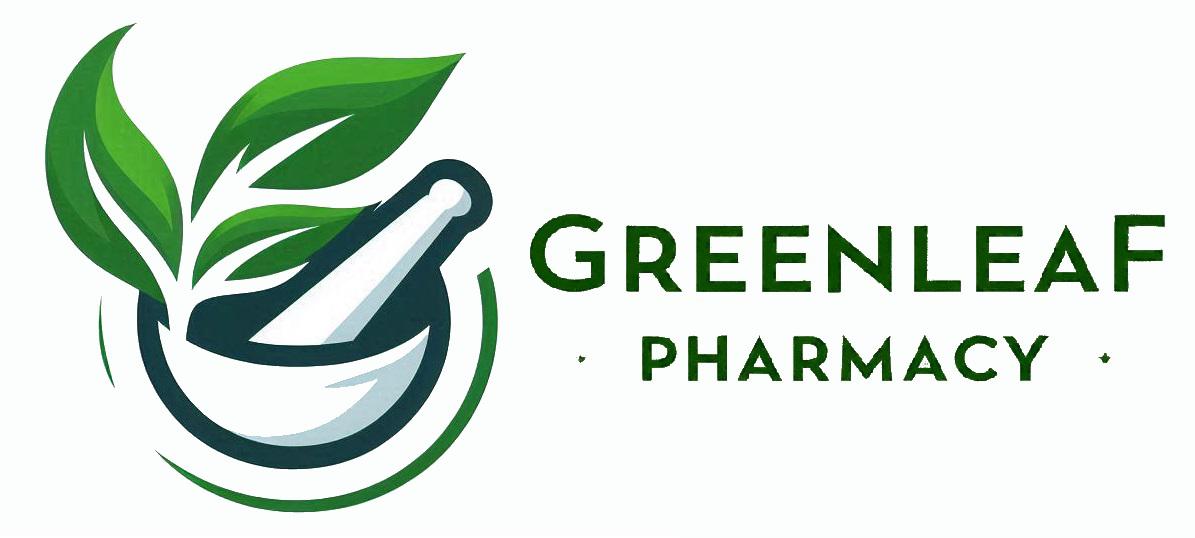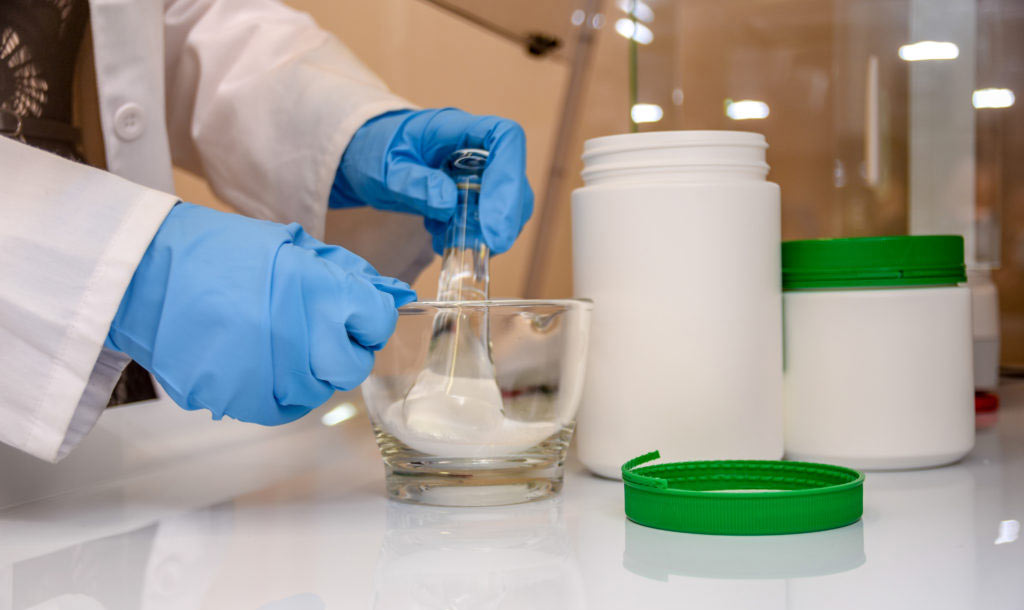Yes, you can tell if a pharmacy is a compounding pharmacy by looking for specific signs, certifications, and services they offer. According to the American Pharmacists Association, about 7,500 of the 56,000 community pharmacies in the United States specialize in compounding services, making custom medications for patients who need something different from regular pills.
This guide will show you exactly what to look for when trying to find a real compounding pharmacy. You’ll learn the key signs, important questions to ask, and how to make sure you’re choosing a safe, trustworthy place for your custom medication needs.
What Makes a Pharmacy a Compounding Pharmacy?
A compounding pharmacy does something special that regular pharmacies don’t always do. According to Harvard Health Publishing, “Any pharmacy that provides medications that are not commercially available and prepares them onsite to meet your specific needs is a compounding pharmacy.”
Think of it like a custom bakery versus a grocery store. Regular pharmacies are like grocery stores – they sell ready-made products. Compounding pharmacies are like custom bakeries – they make things from scratch just for you.
The Basic Definition
Compounding pharmacies combine pure chemicals and active ingredients to create one-of-a-kind medications specific to prescribed dosages and formulations. They take raw materials and mix them into the exact medicine you need.
Clear Signs a Pharmacy Offers Compounding Services
Here are the most obvious ways to spot a compounding pharmacy:
Signs You Can See Right Away
Special Equipment and Clean Rooms Real compounding pharmacies have special mixing equipment and clean preparation areas. You might see:
- Separate compounding labs or clean rooms
- Special mixing machines and scales
- Staff wearing protective gear while working
Custom Service Advertising Look for signs, websites, or brochures that mention:
- “Custom medications”
- “Personalized prescriptions”
- “Made-to-order medicines”
- Specific services like pain relief creams or pet medications
Services That Give It Away
Types of Custom Medications Compounding pharmacies typically offer:
- Pain creams and gels
- Hormone replacement therapy
- Pediatric formulations with better flavors
- Veterinary medications for pets
- Allergy-free versions of medicines
Special Patient Populations They often advertise services for:
- Children who can’t swallow pills
- Pets needing custom flavoring
- Adults with allergies to dyes or preservatives
- Patients needing unusual dosage strengths
Important Certifications to Look For
Not all compounding pharmacies are created equal. The best ones have special certifications that show they meet high safety standards.
PCAB Accreditation – The Gold Standard
The Pharmacy Compounding Accreditation Board (PCAB) accreditation is considered “the gold standard for compounding pharmacies” according to Harvard Health Publishing. Only about 8% of pharmacies in the U.S. have achieved PCAB accreditation, making it a rare and important mark of quality.
What PCAB Accreditation Means:
- The pharmacy meets strict quality standards
- They follow proper safety procedures
- They have regular inspections by experts
- Their staff has special training
Other Important Certifications
Board-Certified Pharmacists Look for pharmacists who are “board-certified sterile compounding pharmacists, or BCSCPs” when evaluating a compounding pharmacy. This shows they have extra training in making sterile medications safely.
USP Standards Compliance Good compounding pharmacies follow United States Pharmacopeia (USP) standards. These standards cover how compounded drugs should be made, processed, and packed.
Types of Compounding Pharmacies
Understanding the different types can help you know what to expect:
503A Traditional Compounding Pharmacies
503A compounding pharmacies can create medications based on your doctor’s prescription, and compounding can only be done by a licensed pharmacist or physician. These are mostly regulated by state boards.
What They Do:
- Make custom medications for individual patients
- Work directly with your prescription
- Handle both sterile and non-sterile compounding
503B Outsourcing Facilities
503B compounding pharmacies are outsourcing facilities that can create large amounts of drugs and sell them to medical offices and hospitals. The FDA regulates these more strictly.
Key Differences:
- Make larger batches for multiple patients
- Have stricter quality rules
- Often supply hospitals and clinics
Questions to Ask When Evaluating a Compounding Pharmacy
Before trusting a compounding pharmacy with your health, ask these important questions:
About Their Training and Expertise
- What training do your pharmacists have? Look for specialized compounding training and certifications.
- How long have you been compounding medications? Experience matters in this specialized field.
- What types of compounding do you specialize in? Some focus on pain management, others on hormone therapy or pet medications.
About Quality and Safety
- Do you have PCAB accreditation? This is the most important certification to look for.
- Does a third-party lab test your medications? Independent testing helps ensure quality and safety.
- What cleaning and safety procedures do you follow? They should follow strict cleanliness standards.
About Their Services
- Can you make the specific type of medication I need? Not all compounding pharmacies do everything.
- How long does it take to prepare my medication? Custom medications take more time than regular prescriptions.
- Do you work with my insurance? Insurance coverage for compounded medications can be complicated.
Red Flags to Watch Out For
Some warning signs that a pharmacy might not be legitimate:
Online and Telehealth Concerns
The FDA warns consumers that consumers who purchase compounded drugs online may not know whether the drug was produced by a compounder that meets appropriate quality standards. The FDA warns about buying compounded medications online without knowing who made them.
Be Careful Of:
- Pharmacies that only exist online
- No physical address or phone number
- Prices that seem too good to be true
- No pharmacist available to answer questions
Lack of Proper Oversight
Warning Signs:
- No state pharmacy license displayed
- Refusing to answer questions about certifications
- Making claims about “miracle cures”
- Pressuring you to buy immediately
How to Find Legitimate Compounding Pharmacies
Use Professional Resources
You can find compounding pharmacies near you on the Alliance for Pharmacy Compounding website. This is a trusted source for locating legitimate compounding pharmacies.
Other Good Resources:
- Your doctor’s recommendations
- State board of pharmacy websites
- PCAB’s directory of accredited pharmacies
Ask Your Healthcare Provider
Your doctor or specialist often knows which compounding pharmacies in your area do good work. They can recommend places they trust based on their experience with other patients.
The Growing Need for Compounding Pharmacies
The compounding pharmacy industry is growing fast. The U.S. compounding pharmacies market size was $6.10 billion in 2024 and is predicted to reach $10.93 billion by 2034.
Why More People Need Compounding
Common Reasons Include:
- Drug shortages affecting regular medications
- Allergies to ingredients in regular pills
- Need for different strengths not commercially available
- Children who won’t take bad-tasting medicine
- Pets needing special formulations
Growing Health Needs The growing prevalence of chronic diseases necessitates personalized medication solutions, which regular pharmacies can’t always provide.
Safety Considerations
While compounding pharmacies serve an important need, there are some risks to know about:
Potential Risks
Compounded drugs aren’t FDA-approved, which means the FDA does not verify their safety, effectiveness or quality before they are marketed. However, legitimate compounding pharmacies follow strict safety standards to minimize risks.
How Good Pharmacies Stay Safe:
- Follow USP guidelines
- Use only pharmaceutical-grade ingredients
- Test medications for quality
- Maintain clean preparation areas
- Keep detailed records
When Compounding Makes Sense
It’s best to use a compounding pharmacy only when truly necessary — when you need a medication that is not commercially available through a regular pharmacy.
Costs and Insurance
Understanding the financial side helps you make informed decisions:
Insurance Coverage
Many insurance plans have limited coverage for compounded medications. Insurance coverage for compounded medications can be complicated and expensive, often requiring pre-approval or resulting in out-of-pocket expenses.
What to Expect:
- Higher out-of-pocket costs than regular medications
- Need for prior authorization
- Some insurance plans don’t cover compounding at all
Cost-Benefit Analysis
Even with higher costs, compounding can be worth it when:
- Regular medications don’t work for you
- You have severe allergies to standard ingredients
- Your pet needs special formulations
- Standard dosages aren’t right for your condition
State Regulations and Oversight
Compounding pharmacies must follow both state and federal rules:
State Board Oversight
State pharmacy boards oversee compounding pharmacies in the U.S., while the FDA oversees the safety of drugs used in compounding. This dual oversight helps protect patients.
What This Means:
- Pharmacies must have proper state licenses
- Regular inspections ensure compliance
- Violations can result in license loss
Federal Regulations
The FDA doesn’t approve individual compounded medications, but it does regulate:
- The ingredients used in compounding
- Safety standards for preparation areas
- Labeling requirements
- Quality control procedures
Special Considerations for Different Patient Groups
Pediatric Patients
Children often need compounding services because:
- They can’t swallow adult-sized pills
- They need different concentrations
- Standard medications taste too bad
- They have allergies to common ingredients
Look for pharmacies that specialize in pediatric formulations with kid-friendly flavors and dosing.
Pet Owners
Pets often require customized medication options, just like their human counterparts. Many compounding pharmacies offer veterinary compounding services with flavors pets actually like.
Elderly Patients
Older adults may need compounding for:
- Difficulty swallowing pills
- Multiple medication combinations
- Reduced dosage requirements
- Allergy considerations
Technology and Modern Compounding
Today’s compounding pharmacies use advanced technology to ensure quality and safety:
Quality Control Measures
Modern Safety Features:
- Automated mixing equipment for precision
- Environmental monitoring systems
- Digital record-keeping for traceability
- Advanced testing equipment
Digital Integration
Many compounding pharmacies now offer:
- Online prescription management
- Digital communication with doctors
- Home delivery services
- Electronic health record integration
Final Thoughts
Finding the right compounding pharmacy takes some research, but it’s worth the effort when you need custom medications. Look for clear signs like PCAB accreditation, experienced pharmacists, and proper facilities. Ask the right questions about training, testing, and safety procedures.
Remember that legitimate compounding pharmacies follow strict quality standards and have proper certifications. Don’t be afraid to ask questions – good pharmacies welcome inquiries about their processes and qualifications.
If you need compounding services for yourself or your pet, start by talking to your healthcare provider. They can help you find a trustworthy local pharmacy that meets your specific needs.
The key is finding a balance between getting the custom medication you need and ensuring it comes from a safe, reliable source. With the right compounding pharmacy, you can get medications that work better for your unique situation while maintaining the highest safety standards.

